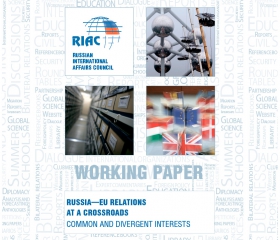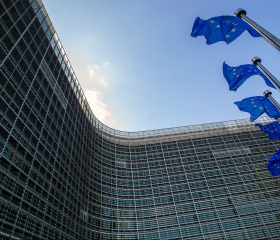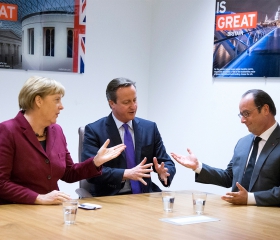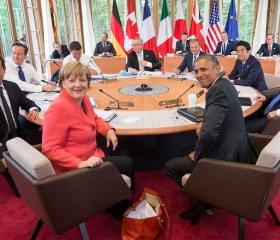Russia and the West: What Does “Equality” Mean?
In
Login if you are already registered
(votes: 2, rating: 5) |
(2 votes) |
Ph.D. in History, Academic Director of the Russian International Affairs Council, RIAC Member
Russian-Western relations, almost three decades after the end of the Cold War, have been tightly packed with unjustified expectations, misperceptions, misunderstandings and self-delusions on both sides. The Ukrainian crisis revealed a deep gap in how the Kremlin and its Western interlocutors understood some of the very fundamental principles of the East-West relationship and the international relations at large. One of these fundamental and controversial principles is the principle of “equality”. In their official rhetoric, both sides have always stood for “equality” when dealing with each other. Nevertheless, their interpretations of “equality” have never been the same.
Russian-Western relations, almost three decades after the end of the Cold War, have been tightly packed with unjustified expectations, misperceptions, misunderstandings and self-delusions on both sides. Quite often, Russian and Western politicians and scholars have used the same words when talking to each other, but implied very different meanings of these words. Such ambiguity was, in certain cases, purposeful: it allowed Moscow and Western capitals to stick to a mutually acceptable pattern of “political correctness” and to avoid the potential embarrassments of a straightforward and blunt conversation. The assumption, arguably, was that with time the two sides would gradually reconcile their visions of the world and the problem of doublespeak would fade away.
However, if such expectations did exist, they proved to be wrong. The Ukrainian crisis revealed a deep gap in how the Kremlin and its Western interlocutors understood some of the very fundamental principles of the East-West relationship and the international relations at large. This gap still exists and without having bridged it, there is little hope for more stable and cooperative Russia-West interaction.
One of these fundamental and controversial principles is the principle of “equality”. In their official rhetoric, both sides have always stood for “equality” when dealing with each other. Nevertheless, their interpretations of “equality” have never been the same.
How did the Cold War end?
To understand the origins of diverging interpretations of “equality”, one has to go back to the end of the Cold War. For most people in the West, the Cold War ended with the clear and unambiguous triumph of Western values, principles and institutions. The Communist system collapsed in 1989, being incapable of successfully competing with the superior and more adaptive capitalist system, and was followed by the dissolution of the Soviet Union two years later, being outdated, reform-resistant and doomed to extinction.

Russia—EU Relations at a Crossroads.
Common and Divergent Interests
Therefore, from a standard Western viewpoint, in the 1990s and onwards, there was absolutely no need to reform in any radical way the Western institutions that had served their purpose so well during the Cold War. The immediate challenge was different – how to manage the swift and consistent geographical expansion of these institutions to the East, in order to broaden as much as possible the area of liberal democracy, market economy and international stability.
Ideally, as seen from the West, this area should have embraced Russia along with other post-Communist European countries, although everybody understood that the Russian transition was bound to be a particularly long, painful and precarious process. The transition could have been facilitated by treating Moscow with more respect and empathy than it probably deserved. The principle of “equality” in relations with Russia meant that Moscow could get the best terms possible for collaborating with the triumphalist West. The West was more than generous in offering Russia a “special arrangement” with the European Union and a seat at the NATO-Russian Council. Moscow had to play by the Western rules, because these rules were supposed to be clearly better for the new, democratic Russia than any other alternative, if such an alternative ever existed in the 1990s.
However, this was definitely not how they understood “equality” in the Kremlin. Above all, they never agreed to the idea that Moscow had lost the Cold War and could therefore be treated as a defeated power. The predominant perception within the Russian political class was that Moscow had ended the Cold War “voluntarily” and that it had disbanded both the “outer” and the “inner” Soviet empires on its own, not due to ever-growing pressure from the West. It should be noted that, even today, twenty-five years later, many in Russia believe that the collapse of the Soviet Union could have been avoided.
Since there was no overwhelming feeling of a historic defeat (except for a relatively small group of die-hard Communists), most in the Russian leadership did not consider contrition or repentance as sine qua non for a future Russian foreign policy. Unlike in Germany after the end of the Second World War, in Russia, after the collapse of the Soviet Union, there was no profound sense of guilt for the inglorious past. On the contrary, there was a sense of entitlement that explains a lot in Moscow’s attitude to both its former satellites and its newly acquired partners in the West.
The centrality of Western institutions questioned
The principle of “equality”, as seen from the Kremlin, meant that the future security and development architecture in the Euro- Atlantic area would require something more than the mechanical geographical expansion of the old Western institutions. The immediate challenge, as seen in Moscow, was to build new inclusive institutions that would embrace both the East and the West on an “equal” footing. The most graphic manifestation of this vision was the Charter of Paris for a New Europe (also known as the Paris Charter) adopted by a summit meeting of most European governments, in addition to those of Canada, the United States and the Soviet Union, in Paris, in November 1990. The document did not even mention NATO as a pillar of the Euro-Atlantic security system; instead, it put major emphasis on the Helsinki process and its institutional foundations (CSCE/OSCE).
Since the dissolution of the Soviet Union, the Russian leadership always claimed a special status in its relations with the European Union and the Atlantic Alliance, compared to other post-Communist states. The Kremlin tried to substantiate this claim referring to many aspects of Russian exceptionalism: the size of the country, its geographical extension, the nuclear superpower standing, permanent membership of the UN Security Council, etc. Of course, there were radical pro-Western factions within the Russian political leadership, and in the expert community that made the case for Russian membership of both NATO and the European Union. But, even during the heydays of Moscow’s relations with the West, these factions did not define the Kremlin’s policies. In terms of its civilisational identity, Russia was commonly regarded as an organic part of the “Greater West”, but institutionally it was considered too special and too “different” to be successfully integrated into existing Western organisations.

Andrey Kortunov:
In Reading Putin, Don’t Mistake Nostalgia
for Ambition
The central idea of a new arrangement in Europe, which Moscow insisted on, was the idea of an East – West convergence, instead of an absorption of the East by the West. In other words, Russia was willing to turn more “European” provided that Europe would become more “Russian”; Moscow and Brussels were expected to make reciprocal concessions and compromises in the most important areas of their cooperation – such as, security, energy, visa regimes, agriculture and transportation. This is why, for instance, in the early 2000s, Russia chose not to participate in the European Union’s European Neighbourhood Policy (ENP): it aspired to be an “equal” partner of the EU, as opposed to being part of the “junior partnership” that Russia understood the ENP to be. Consequently, Russia and the European Union agreed to create a “Four Common Spaces” initiative for cooperation in different spheres. Both sides underlined the principle of “equality” as the foundation for their cooperation.
At the end of the day, the assumption that Russia could become an “equal” partner to the European Union turned out to be an illusion. In practice, from the EU standpoint, there should have been no substantial differences between its relations with Russia and the ENP Action Plans with other external partners. In both cases, the final agreement was to be based on provisions from the EU acquis communautaire and necessitated unilateral adjustments to EU regulations by the external partner in question. This approach did not match Moscow’s perception of “equality” and was particularly disappointing in the energy field, where Russia had expected a friendlier policy as the EU’s main supplier of oil and gas.
The same illusion of “equality” characterised the uneasy relations between Russia and NATO. For a variety of reasons, Moscow never considered NATO membership in a serious way. Nevertheless, the format of the Russia-NATO Council, as seen from Moscow, allowed Russia to take its “legitimate” place at the table, where the most important matters of Euro-Atlantic security were discussed. The idea was to get as close as possible to de facto membership without formally joining the Atlantic Alliance. The principle of “equality” implied that no issues that could have a significant impact on Russian security (including the enlargement of NATO to the East, of course) should be considered in Russia’s absence.
This view was not discouraged by NATO from the very outset; on the contrary, at the level of political rhetoric, it was explicitly encouraged. However, the Russian perception of the Russia- NATO Council was not shared in Brussels or in Washington. At best, the Council was designed to be a mechanism for technical coordination and information exchange, as a potentially useful channel of communication with Moscow. The Council was also regarded as a “consolation prize” to Moscow in order to mitigate its opposition to the accession of new members to the Alliance. As a rule, proposals for any joint Russia-NATO actions implied that Russia should put its troops under NATO’s command, not the other way round. In a sense, NATO offered Russia its own security acquiscommunautairethat Russia had to accept and adjust to.
Any attempts to upgrade the format of the Council from the Russian side generated a lot of suspicion in the West, since they were interpreted as part of the Russian strategy aimed at acquiring veto power over the most important NATO decisions. These attitudes were publicly revealed when NATO decided to freeze the Council in the midst of the crisis around Ukraine, although the Council had undertaken the explicit mission to promptly react to such dramatic situations.
Asymmetries and status
One of the “existential” problems with Russia’s claims for “equality” in its relations with the West is rooted in profound asymmetries between the two sides, in both economic and security domains. During the Cold War, the Communist system was able to challenge NATO (with the Warsaw Treaty Organisation) and the European Union (with COMECON). Indeed, there were potential asymmetries even during the Cold War, but these were not that evident and the Soviet Union could claim an overall “parity” with the West.
Today, the situation is different. The Russian economic potential is evidently no match for that of the European Union. Likewise, NATO has clear superiority over Russia in terms of quality and quantity of military capabilities. Under such circumstances, it is increasingly difficult for Russian leaders to substantiate their claims to “equality” in dealing with their Western counterparts.
Therefore, Russia has been desperately trying to build around itself the second centre of economic and security gravity to avoid the position of a peripheral power in the new European architecture. The initial (pre-Crimea) attempts to launch the Eurasian Economic Union (EEU) were, in the author’s opinion, guided, not by the ill- conceived intentions to restore the former Soviet Union, but rather by the conviction that a multilateral economic alliance would be in a better position to negotiate a fair arrangement with the European Union than Russia alone.
Likewise, Russia spent a lot of effort promoting the Collective Security Treaty Organisation (CSTO) as a “natural” institutional partner for NATO, covering most of the territory of the former Soviet Union. The assumption was that NATO might find it easier to deal with another multilateral security alliance than with Russia individually. However, both the EU and NATO were quite reluctant to accept EEU and CSTO as “equal” and legitimate partners for negotiations.
Given these profound differences in Russian and Western interpretations of “equality”, it is hard to imagine how large-scale plans to build a Greater Europe – to construct comprehensive systems of European security and cooperation, new structures and institutions – could have been successful. From the very beginning, Russia was forever doomed to remain a peripheral power in the NATO/EU-dominated Europe as well as in the NATO/ EU-dominated world. As they used to say in Moscow, “we were invited to pre-dinner drinks, but not to the dinner itself”.
The Russian preoccupation with “equality” in dealing with the West reflects a deep post-imperial trauma. In the current Russian context, “equality” has a lot to do with symbolism, not with substance. If comparing how differently the Chinese penetration of Central Asia and the EU’s Eastern Partnership Policy in Eastern Europe and in the South Caucasus were perceived by Moscow, the evident economic misbalances between Russia and China do not allow a place for “equality” in the relationship. In theory, Russia should have been much more concerned about the Chinese advances given their massive scale and the long-term planning that the Chinese have undertaken. In reality, the Chinese presence in Central Asia was regarded as benign and even positive in many ways, while the EU’s very modest efforts in Eastern Europe and the South Caucasus were criticised as being hostile, and even provocative, towards Russia.
Was this because China is not a Western-type democracy and Moscow cannot suspect Beijing of staging colour revolutions in its neighbourhood? This is, probably, part of the story, but not all of it. It is also a matter of symbolism. Beijing never hesitated to go the extra mile to show its respect towards Moscow, to emphasise the symbolic “equality” in the Russian-Chinese relations. The Russians always had all of the facts about what China was planning to do in the region. Wherever possible, the Chinese tried to ensure that their bilateral projects with select Central Asian states were wrapped up in larger multilateral arrangements that would include Russia the Shanghai Cooperation Organisation is one of the clearest illustrations of this approach). On top of this, China never questions Russia’s leading position when it comes to the region’s security matters. As a result, through its openness and full disclosure of its intentions, Beijing succeeded where Brussels failed.
The Russian emphasis on “equality” in Moscow’s relations with the West can be dismissed as irrelevant in the post-Ukrainian environment. It can also be criticised as hypocritical and selective: indeed, the Kremlin seldom refers to “equality” in the context of its relations with other post-Soviet states. However, it should be regarded as a reflection of a more general problem – Russia has always felt uncomfortable about remaining a peripheral power in the NATO/EU-centred Europe, as well as in the NATO/EU/US- centred world.
To make Russia a constructive player in the new international system, one has to find ways to help Moscow overcome this sense of being excluded from the decision-making mechanisms that really matter. If Russia has no stakes in maintaining the system, the temptations to become a regional or global spoiler will be much harder to resist. This is true not only for Russia, but for many other countries on the periphery of the Western institutions dealing with security, international economy or global finance.
First published by Latvian Institute of International Affairs
(votes: 2, rating: 5) |
(2 votes) |







